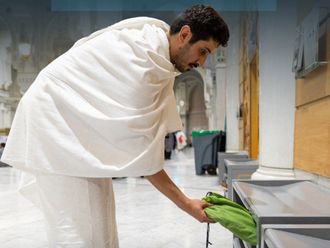
Cairo: Saudi employment authorities have included Tanzania onto the list of domestic help recruitment, setting the price cap at SR5,700 per worker inclusive of value-added tax (VAT).
The kingdom’s Ministry of Human Resources said the move continues its initiatives to offer suitable and diverse choices for citizens and expatriates interested in recruiting domestic workers. The decision is part of the ministry’s efforts to regulate the recruitment market and price governance.
The ministry has urged all establishments concerned with recruitment to commit themselves to observing the ceilings of the announced prices to avoid penalties.
Earlier this year, a Saudi government portal responsible for domestic labour affairs highlighted the price caps for hiring house workers in the kingdom.
The Musaned platform, linked to the Saudi Ministry of Human Resources, put the maximum fees of recruiting from Uganda at SR8,300 per worker, Ethiopia at SR5,900, Kenya at SR9,000, Bangladesh at SR11,750, and Sri Lanka at SR13,800, while from the Philippines set at SR14,700, Thailand at SR10,000 and Burundi at SR7,500 exclusive VAT.
Saudi labour authorities have recently sought to regulate the domestic labour market.
To this end, the Ministry of Human Resources launched Musaned to help customers learn about their rights and duties and related services including visa issuance, recruitment requests and contractual relation between the employer and the worker.
The ministry has said it is necessary to conduct contracting via the Musaned, being the official recruitment platform.
Last October, Saudi Arabia unveiled new rules for employing domestic workers, setting the worker’s minimum age at 21 years as part of efforts to preserve contractual rights.
The regulations stress that the dues owed to the worker or his/her heirs are considered first-degree debts.
The contract should have a fixed duration, and if not, it will be considered renewable for one year from the date of the worker doing the job.












